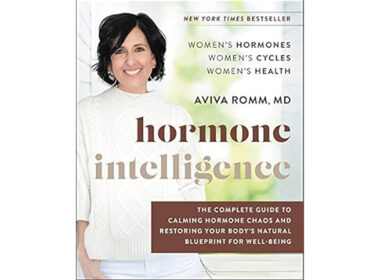2011 was the year I first realized the conflict between eating an organic, hormone-free diet while taking synthetic hormones like the birth control pill. My fellow editors and I were discussing an article on living green and how, for a society obsessed with eating clean, we wondered how inorganic the Pill was on our sexual health. We should have wondered how it was affecting our mental health too.
The oral contraceptive was first approved by the US Food & Drug Administration in 1960, yet it has taken mainstream media nearly five decades to scrutinize the Pill’s effects on women’s bodies—not only physically but also psychologically. If women were questioning whether their hormonal birth control was affecting their mood in private, women today are casting off the stigma around speaking out for better and healthier alternatives.
Out of the dark and into the light
Toni Weschler, MPH, a nationally respected women’s health educator and speaker first published national bestseller Taking Charge of Your Fertility over 20 years ago. She writes of the various methods of birth control she had tried, “If I wasn’t dealing with weight gain and headaches caused by the Pill, I was enduring urinary tract infections from the diaphragm or irritation from the sponge.” These frustrations led her to pursue studies in fertility awareness. Later, Weschler sought to fill the information missing from women’s sex health education.
Thankfully, as scientific research continues to confirm links between the Pill, depression, anxiety, and even an increased risk of suicide (TIME, 2017), more doctors and health experts today are addressing the mental side effects of hormonal contraceptives and helping their patients find solutions. Ten years ago, doctors like Kelly Brogan, MD, a board-certified psychiatrist and author of New York Times bestseller A Mind of Your Own, might have come off as a new age wellness guru. But these days, thousands of women look to her for practical tools and ideas to end symptoms like depression and anxiety without the use of drugs. For Dr. Brogan, this process often begins with getting her female patients off the Pill.
Which came first? Psychological problems or the Pill?
Dr. Brogan wants her patients off the Pill, especially if they complain about flat mood, low libido, irritability, depression, and anxiety. “Despite having taken it myself for 12 years, I’ve come to believe that it represents a significant obstacle to mental health and appropriate hormone balance.” When she talks about the interplay between adrenal, thyroid, and sex hormones, she says, “I use the analogy of 3D glasses so that if you were to cover up one of the lenses, you just can’t expect the picture to be quite right.”
Dr. Brogan notes that there is a subset of people for whom birth control can exacerbate existing mental health issues or manifest new psychiatric symptoms. For some, synthetic hormones increase thyroid and sex hormone binding proteins which then lower the free hormones in a woman’s body responsible for important jobs like mood stabilization. This is especially true in women who are genetically prone to depression, anxiety, and other mental illnesses. And with new data from the National Center For Health Statistics finding that women are at least twice as likely to be depressed as men, it’s a health issue we should take seriously.
Other options out there
As an alternative to hormonal birth control, Dr. Brogan recommends basal body temperature monitors like Pearly or, one of my personal favorites, Daysy. But these are just a few of the many scientifically backed Fertility Awareness Methods (FAMs) available to women today.
Natural Womanhood is committed to educating women about the several charting methods we can use to track our physical health, achieve and avoid pregnancy. These include the Creighton Model or Billings Method, SymptoPro, and the Marquette method, all of which you can learn more about getting started here. As we discover more about how our hormones affect our mental and emotional health throughout our cycles, charting can help our doctors address the depression, anxiety, fatigue, flat mood, weight gain, or more that we may experience—without the use of synthetic hormones. Whether or not you choose to use a FAM, if you’re experiencing symptoms of psychological problems, it’s worth getting off hormonal birth control and into your doctor’s office. You may find the healing you didn’t even know you should have been looking for.
Photo Credit: Anh Nguyen







